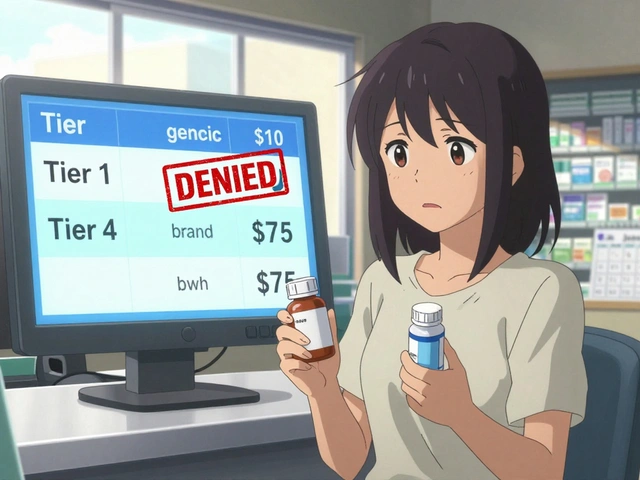Diabetes and Exercise: How to Prevent Low Blood Sugar During Workouts
Jan 14 2026
If your gut feels like a roller‑coaster, you’re not alone. IBS affects millions, but the good news is there are real ways to calm it down. Below you’ll find the most effective treatments broken down into easy steps.
The first thing many doctors suggest is tweaking what you eat. Try the low‑FODMAP diet: cut back on foods high in fermentable carbs like onions, garlic, beans, and certain fruits. Most people notice less bloating within a week. Keep a simple food journal – write down meals and symptoms – so you can spot hidden triggers.
Fiber is another double‑edged sword. Soluble fiber (oats, psyllium) can smooth out loose stools, while too much insoluble fiber (whole wheat, nuts) may worsen gas. Start with a small scoop of psyllium mixed in water each morning and see how you feel.
When diet isn’t enough, doctors often turn to meds. Antispasmodics like hyoscine or dicyclomine relax the intestinal muscles and cut cramping. If diarrhea dominates, loperamide can slow things down. For constipation‑predominant IBS, a low dose of polyethylene glycol (PEG) works well.
Probiotics are popular, but not all strains help. Look for products containing Bifidobacterium infantis or Lactobacillus plantarum; they have the best track record for IBS relief. Start with a single capsule daily and give it two weeks to show results.
In severe cases, prescription drugs like rifaximin (for IBS‑D) or low‑dose tricyclic antidepressants (for pain) may be recommended. Always discuss side effects with your doctor before starting.
Stress is a hidden driver of IBS flare‑ups. Simple habits like a 5‑minute breathing exercise, walking after meals, or a short yoga routine can calm the gut–brain axis. Aim for at least 30 minutes of moderate activity most days – it improves motility and reduces anxiety.
Stay hydrated. Drinking enough water (about 2 L daily) helps keep stools soft and moves food through your system. Limit caffeine and alcohol; both can irritate the bowels.
Sleep matters, too. A regular bedtime routine and at least 7 hours of sleep each night lower cortisol levels, which in turn reduces IBS symptoms for many people.
If you notice blood in stool, unexplained weight loss, or severe pain that doesn’t improve with these steps, book an appointment right away. Those signs could mean something other than IBS.
Your doctor may suggest tests like a colonoscopy, stool analysis, or breath test for SIBO (small intestinal bacterial overgrowth). Getting the right diagnosis ensures you get the most effective treatment.
Remember, IBS is highly individual. What works for one person might not work for another, so be patient and keep track of what helps. With the right mix of diet, meds, and lifestyle habits, you can get your gut back to normal without endless frustration.
A human-friendly, step-by-step guide on buying Mebeverine online in 2025. Includes legit pharmacy tips, safety checks, pricing, and expert insights.

Jan 14 2026

Nov 26 2025

Jan 22 2026

Dec 6 2025

Dec 30 2025